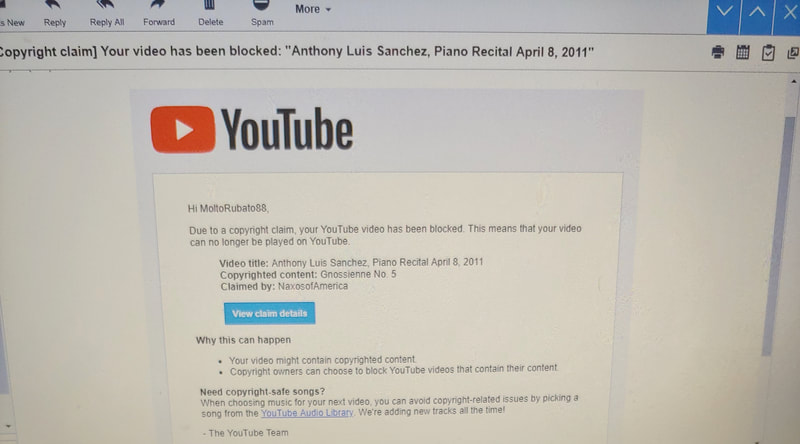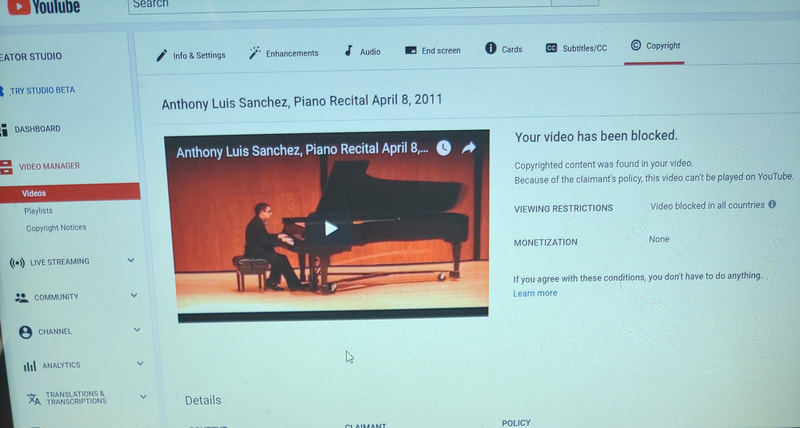How was this even possible? Why did it happen? More importantly, how did I solve the problem? Looking closely at the screenshot on the left, you will notice that the record label "NaxosofAmerica" owns the copyright to the audio recording of the piece. Even though music written and published before 1923 belongs within the "Public Domain," this rule only applies to published musical scores and not audio recordings of music published before 1923. That means that, if you are a musician who wants to post video recordings of performances of music by Bach, Mozart, Beethoven, or whichever composer has been dead for centuries, you have to ask for permission from the record label that claims copyright to their music.
This sounds ridiculous (because it is), but is also happening elsewhere. Just last year, a pianist from Australia had his video performance of music by J.S. Bach removed by Sony Classical on the grounds of a copyright claim. Of course, this situation also backfired when Sony realized that they did not really own the copyright to Bach. Where does this leave the musicians. though? If recording companies can freely block any performance for nonsensical reasons on YouTube, then there are several steps that musicians should take to protect themselves on that social media platform. They can remove the piece in question that is under copyright from their video, mark their video as "Private," re-upload the video without the offending piece, or (worst-case scenario) file a counter-claim complaint and fight back. This last step can be rather dangerous, because it usually involves legal action and money. In situations like the one that I encountered, sometimes it is best to just comply and re-upload the video without the copyrighted content. I will need to do that with my recital video to avoid future complications.
The details discussed here sound very troubling when taking all of these factors into consideration. However, there may be some hope amid this mess, thanks to the passing of the "Music Modernization Act" earlier this year. Some of the rules regarding copyright and audio recordings-- at least, as they apply to United States copyright law-- might change, such as relaxing the Public Domain restrictions on sound recordings released before 1956 (which, as the rules previously stood, would expire in the late 2060s).


 RSS Feed
RSS Feed
